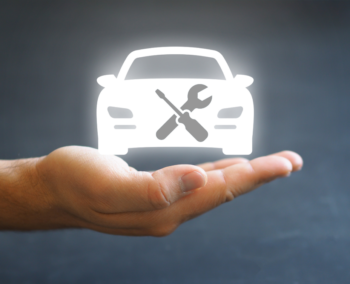How long is a piece of string? The answer to this type of question depends on a variety of factors such as the segment of the car you’re interested in, your budget, how you want to pay for or finance the car, where you’re buying it from and more. Below we look at some of the deciding factors to find out how much does it cost to buy a car…

Average costs of new and used cars
If you’re buying a new car, the average cost will depend on a lot of the factors listed above. If we look at the cost of the most popular new car in the UK, the Vauxhall Corsa, it can vary between £17,015 for the petrol SE Edition at the bottom of the range up to £31,045 for the top of the range Elite Premium all-electric version. This breaks down to £187.15 per month with a £6,184 balloon payment for the petrol model, and £290 per month with a £12,405 balloon payment for the EV, both with 3.9% APR on a 48 month PCP deal.
Leasing nullifies some aspects of the above, often providing a more cost effective deal due to the lack of interest and no balloon payment. Looking at the petrol Vauxhall Corsa SE Edition again the monthly payments come out slightly higher than PCP at £195.97 on a similar deal, but with the initial rental of £1763.73 there are no further payment to make. Similarly, the electric variant is offered as £229.01 with an initial rental of £2061.09
Looking at the used car market, it is currently undergoing unprecedented demand due to a production shortage of new car models. This has seen used car prices increase by 27.5% year-on-year November 20-21 on a like for like basis according to Auto Trader Insight, a trend they don’t expect to see change any time soon.
Prior to this trend, the most popular used vehicle price range on AutoTrader as of October 2020 was between £9,000-£10,000 with the median price being £12,000 according to NimbleFins. The most popular model in Q3 2021 is the Ford Fiesta, with the number of transactions at 88,941 in November.
How much does it cost to buy a car, and how are monthly installments calculated?
Whereas a manufacturer will dictate the recommended retail price for a model, the monthly payments will be based on the depreciation of the vehicle. This drop in value varies depending on makes and models but can see a car lose anywhere between 15-30% of its value in the first year rising to 50% or more over three years.
Depreciation is based on a variety of factors including brand desirability, reliability, fuel economy, projected mileage, wear and tear. All of this allows the manufacturer to accurately budget how much the car will be worth at the end of the contract for potential resale. Future valuations based on depreciation tend to be provided by Cap HPI in the UK. They are the recognised industry leaders for providing data at every stage of a vehicle lifecycle.
Any upfront costs prior to purchasing a car, whether it’s the initial payment with leasing or deposit if buying via PCP or HP, will generally be based on a certain amount of months upfront.
As part of a deal, other extras might be offered which will incrementally bump up the price paid. These could be anything from GAP insurance – which protects the gap between what the car is worth when you begin driving it and what it might be worth if it is written off in the future – to maintenance if buying new.
When buying used there are a variety of other extras available. One of our most unique offerings is Hippo Protect, which offers a lifetime warranty, annual servicing and breakdown cover for total peace of mind when buying a used car and stress-free motoring when on the road.














